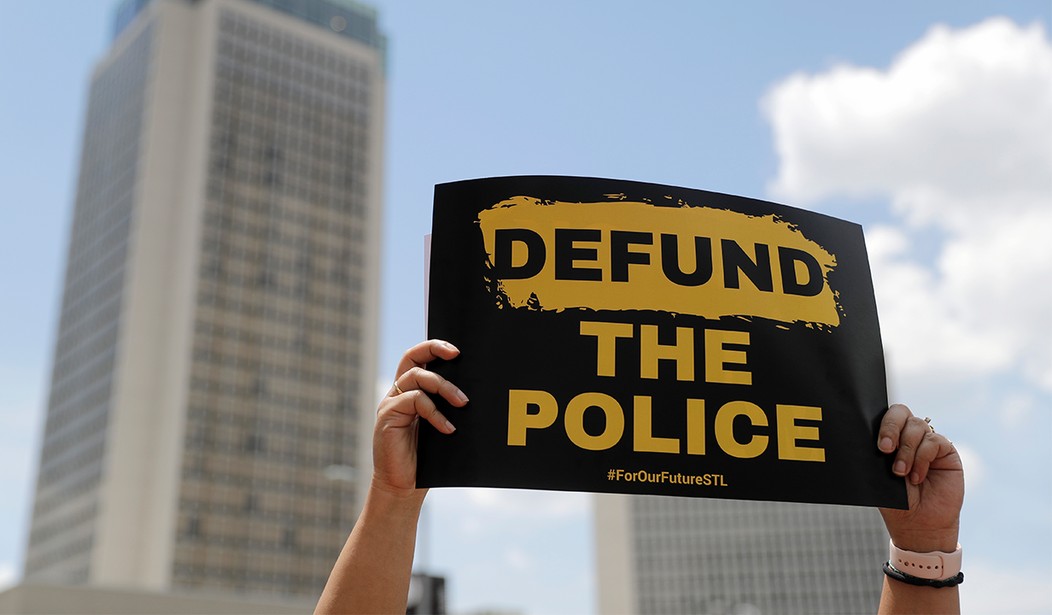As New York headed into the home stretch of last week's mayoral primary campaign, progressive New York Times columnist Michelle Goldberg considered the prospect of a victory by Eric Adams, the Brooklyn borough president running as the most unabashedly pro-police, anti-crime candidate in the race.
"For New York Democrats to choose a law-and-order mayor now," Goldberg wrote in the New York Times, "would be seen as a rebuke to progressives all over the country."
Four days later, it appeared that Adams had come in first in the June 22 primary. The final tally hasn't been released, but it seems more likely than not that the next mayor will be an outspoken Black former cop who for months has rained contempt on progressive demands to "slash the Police Department budget and shrink the police force." Such asinine proposals, he says, threaten the lives of "Black and brown babies" and are promoted primarily by "a lot of young, white, affluent people."
It was indeed a rebuke to the nation's progressive elites and woke activists. And not a moment too soon.
All decent Americans were horrified last year by the pitiless murder of George Floyd, and hundreds of thousands were roused to march and cry out against racial injustice and police brutality. But on the hard left, that reaction soon morphed into something more destructive: relentless demonizing of law enforcement, political pressure to defund police departments, and disdain for any reminder that "blue lives matter" too as racist, cynical, or antisocial. As cities across the country erupted in riots, theft, and arson, progressives sang the praises of "unrest in the streets," defended looting as "reparations," and insisted again and again that the upheaval — which caused dozens of deaths and at least $1 billion in damage — was "mostly peaceful."
Recommended
Unlike other countries, where the COVID-19 pandemic led to less serious crime, violence in US cities has soared. The murder rate in New York exploded by 45 percent in 2020 and another 17 percent so far this year. Homicides increased sharply in Chicago, Baltimore, Milwaukee, Atlanta, and Miami. In Portland, Ore., which slashed its police budget and shut down three law enforcement units, murders skyrocketed by 255 percent. Oakland police chief LeRonne Armstrong, speaking to reporters Monday about the loss of $17 million in funding, was reduced almost to tears as he described his city's devastating rise in murder, robbery, shootings, and carjackings.
America has been living through its deadliest crime wave in more than a generation. Yet for much of the past year, honest discussion of violent crime was so taboo on the left that it went unmentioned at the Democratic convention. In the meantime, police morale has plummeted and cops have quit in droves.
Now the political chickens have come home to roost.
Democrats are realizing that the progressive message on crime and policing is electoral poison. The "defund the police" movement is "nuts," former Massachusetts Governor Michael Dukakis recently told The Hill. "My God, what the hell is going on here?... You have folks screaming and yelling about getting rid of policing, which makes no sense at all." As crime reaches levels not seen in decades, trust in Black Lives Matter has been sinking in the polls, while support for police has been gaining.
Progressives' anti-police rhetoric didn't help Democrats among minority voters, it hurt. Data analyst David Shor told New York magazine that the "defund the police" campaign drove Hispanic voters away from Democratic candidates last fall. "We raised the salience of an ideologically charged issue that millions of nonwhite voters disagreed with us on," he said. he said. Polling by the Manhattan Institute finds that among Black New Yorkers, only 17 percent want to decrease the number of police officers in their neighborhoods, while 62 percent would like to see stepped-up policing of quality-of-life issues, such as graffiti and public urination.
"Large numbers of Black and Latino voters," reports the New York Times, reject the left's approach to "the very issues — race and criminal justice — that progressives assumed would rally voters of color to their side."
At least some progressives are getting the message. Consider crime-weary Cleveland, a minority-majority city where former mayor and congressman Dennis Kucinich, a lifelong Democrat from the leftmost wing of his party, is running to once again lead the city he presided over in the 1970s. His signature issue: Hiring 400 new police officers. Kucinich says he wants to "send a message loud and clear to violent felons: A strengthened Cleveland police force will pursue you. You cannot escape. You will be caught."
A year ago, few Democrats — and no progressives — would have dared speak that way. But a wave of devastating riots and the largest murder spike in more than 60 years have a way of clarifying the political stakes. Which is why a law-and-order hardliner is in the lead to be New York's next mayor, and why the "defund the police" movement is about to expire.

























Join the conversation as a VIP Member